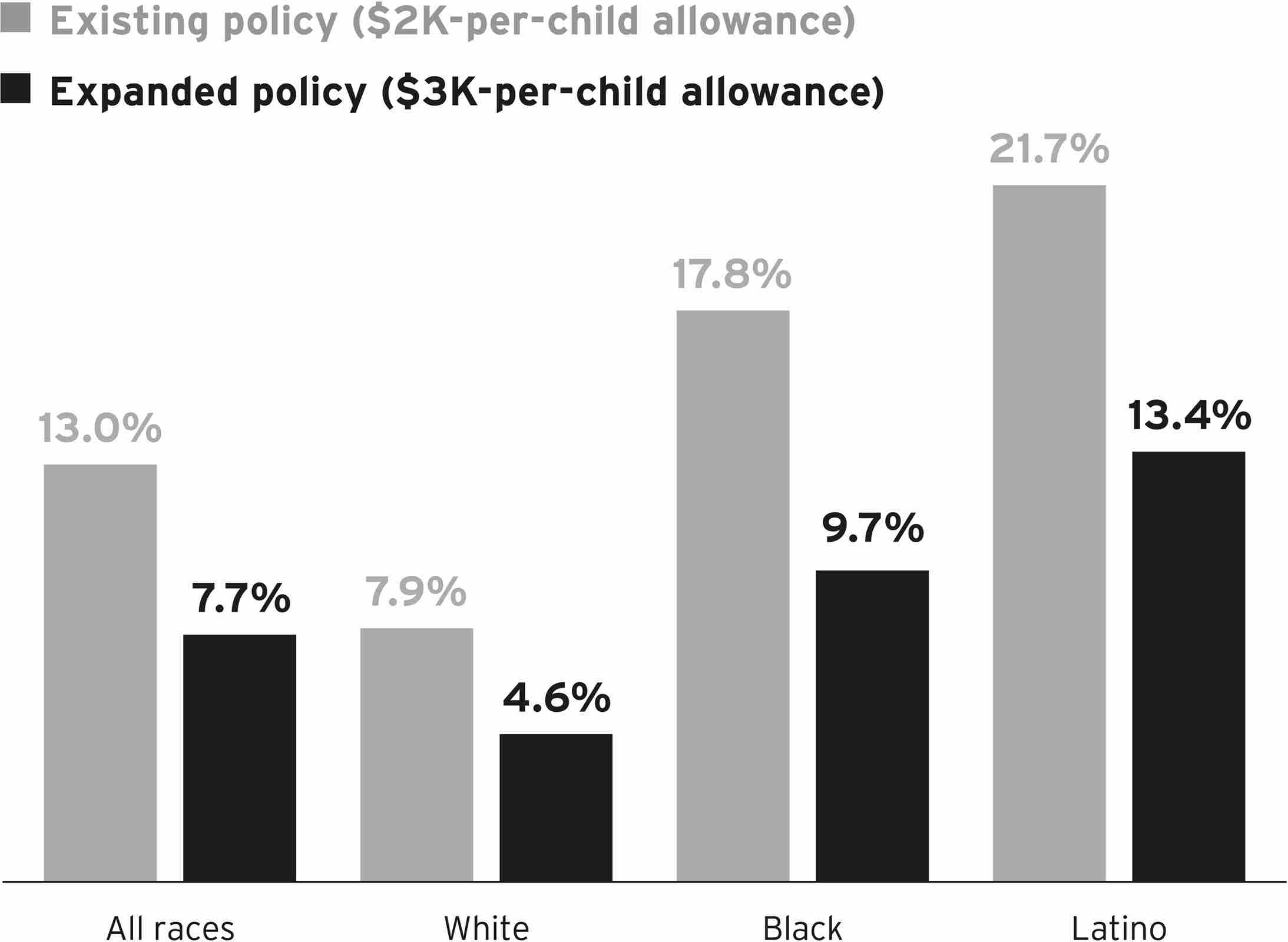Support Children and Family Formation
In 2019, nearly 1 in 7 American children lived in poverty. We are the richest nation in human history. Letting this continue is beyond unacceptable: it’s bad policy. Giving every child a solid start in the world—food, shelter, education, and hope—is the best investment we can make in our future. Argue with me all you want about the minimum wage or antitrust enforcement or Tesla’s share price. Early education and good childcare leads to prosperous economic outcomes for everyone. Today’s children will be the workers, thinkers, and leaders of tomorrow.
After the District of Columbia implemented universal preschool in 2008, maternal labor force participation climbed steadily from 65% to 76% in 2016. Furthermore, a 2011 study by Harvard economist Raj Chetty and his colleagues found that students who were randomly assigned to higher-quality classrooms in grades K–3 were more likely to attend college, save more for retirement, earn higher incomes, and live in better neighborhoods as adults. Let’s make sure Professor Chetty can’t continue his research—make all classrooms high quality. I doubt he’ll mind.
The simplest way to aid children is also one of the most effective: give the parents money. The federal child tax credit currently gives up to $2,000 per child to middle-income households. That’s nowhere near sufficient. A universal $3,000-per-child allowance would almost halve child poverty and racial inequities. Even critics, who are concerned that the credit would encourage some recipients not to work, acknowledge that it would do more than any current program to reduce child poverty.
97
Child Tax Credit’s Impact on Child Poverty Rates
2019

Source: Center on Budget and Policy Priorities.